Is the UK heading for a second national lockdown? The latest Covid rules as they are updated
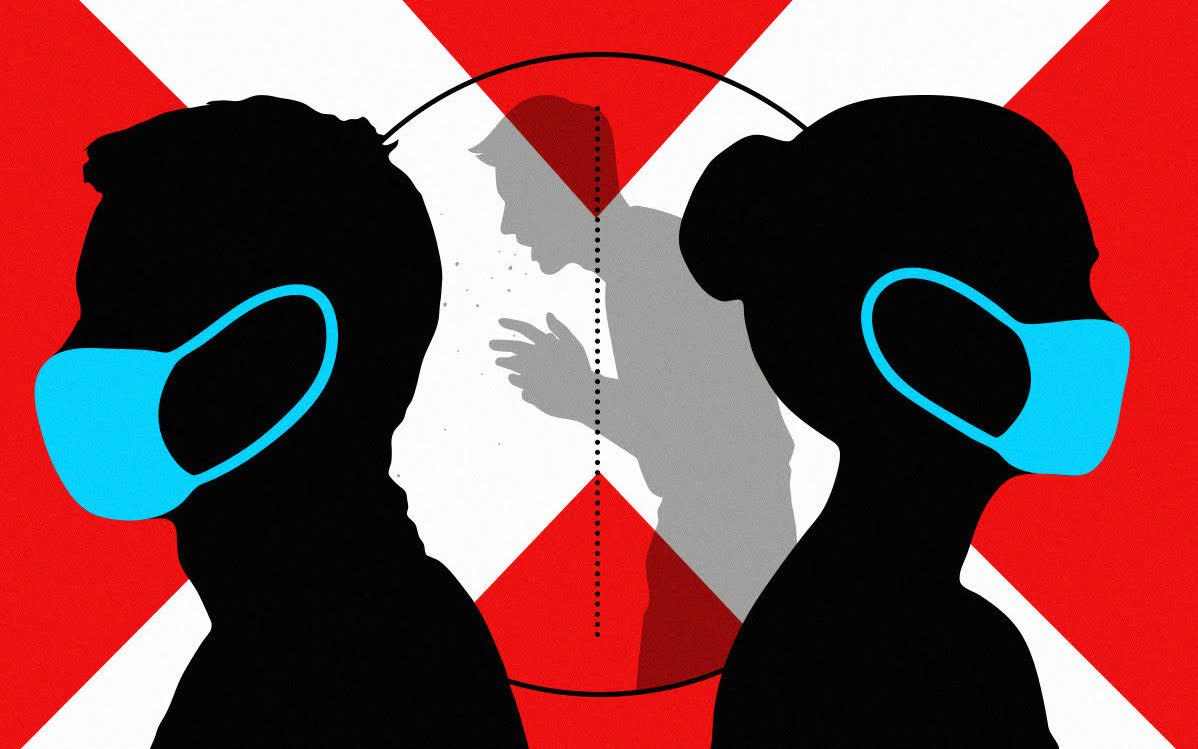

Boris Johnson and his key scientific advisers updated the country on Wednesday, September 30, on the latest efforts to fight the coronavirus pandemic.
The Prime Minister called for "collective forbearance, common sense and willingness to make sacrifices" in the battle against coronavirus, warning that the country was at a "critical moment".
He said the latest increase in coronavirus cases showed why the Government had been forced to bring in new restrictions, adding that he would not hesitate to a bring in further measures if required.
"If we put in the work together now then we give ourselves the best possible chance of avoiding that outcome and avoiding further measures," he said.
"I know some people will think we should give up and let the virus take its course despite the huge loss of life that would potentially entail.
"I have to say I profoundly disagree. I don't think that is what the British people want. I don't think they want to throw in the sponge. They want to fight and defeat this virus and that is what we are going to do."
England's Chief Medical Officer, Professor Chris Whitty, said the number of people in hospital was rising, particularly in hotspots, although the figures remained at a much lower level than the beginning of April.
"We are pointing out that the direction of travel for both hospitals and intensive care is going in the wrong direction, particularly in these areas that have seen rapid increases in cases," he said.
In a stark warning, Prof Whitty added: "We have got a long winter ahead of us".
What are the latest restrictions?
On September 23, the Prime Minister told the country that new, tighter, rules had been put in place around the wearing of face masks, pub opening hours and weddings, while people who are able, have been encouraged to work from home.
But on Wednesday. September 30, he said he was confident Britain would get through the latest outbreak of the coronavirus.
"I am absolutely confident that with better treatments and with the prospect of a vaccine we will get through this," he told a No 10 news conference.
"Let's follow the rules, wash our hands, cover our faces, observe social-distancing, download the app, and together we will fight back against this virus, protect the NHS and save more lives."
The restrictions will be in place for the next six months unless there is "palpable progress", the Prime Minister said.
Here are the key points, which come into force in England this week, from the Prime Minister's statement to the House of Commons:
Office workers who can work from home should do so.
Pubs, bars and restaurants in England will be ordered to close by 10pm each night.
The hospitality sector will be restricted to table service only.
Face coverings must be worn in taxis and private hire vehicles, and by retail staff while at work.
Customers in indoor hospitality will also have to wear face coverings - except while seated at a table to eat or drink.
The exemptions to the rule of six will be reduced, banning indoor team sport - such as indoor five-a-side football matches.
The planned return of spectators to sports venues will now not go ahead from October 1.
Wedding ceremonies and receptions will be capped at 15 people from September 28.
Read more: Latest Covid-19 UK cases today
How did we get here?
On Monday, September 21, Prof Chris Whitty, and Chief Scientific Adviser, Sir Patrick Vallance, used a press briefing to set out their growing worry over the spread of coronavirus in the UK.
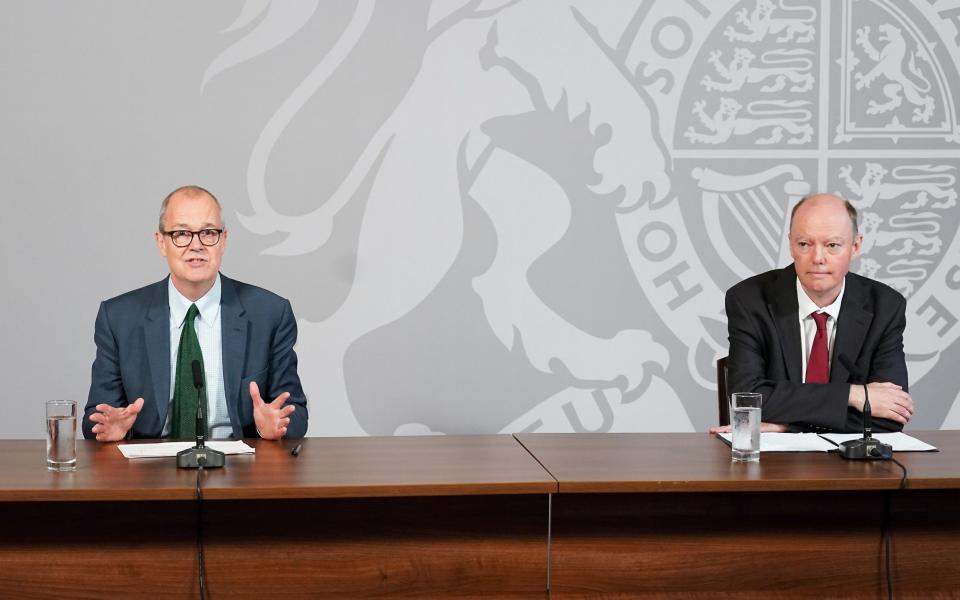
These were the key points:
Sir Patrick warned there could be 50,000 coronavirus cases per day next month, leading to 200-plus daily deaths, if the rate of the disease's spread was not tackled.
Less than 8 per cent of the UK population are thought to have coronavirus antibodies to fight off infection, making the "vast majority" of people "susceptible" to the deadly virus.
Prof Whitty said there were now "significant rates of transmission" of coronavirus in the UK, with the "great majority" of areas facing an increase.
He hinted at curbs on social life being needed to prevent coronavirus spiralling out of control, saying "we have to break unnecessary links between households because that is the way in which this virus is transmitted".
The UK, said Prof Whitty, must face up to a "six-month problem" as colder weather arrives, telling the nation: "At this point the seasons are against us, we're now going into the seasons - late autumn and winter - which benefit respiratory viruses, and it is very likely they will benefit Covid, as they do, for example, flu."
Prof Whitty said there was a "very difficult balance" to be struck between preventing the NHS from being "overwhelmed by a huge spike" in cases and a second economic lockdown that could cause unemployment, poverty and deprivation, outcomes which would bring their own "long-term health effects".
Could there be a short 'circuit breaker' lockdown?
A "circuit breaker" to curb rising infections could still be on the cards.
The Government will continue to take action to dampen down "local flare ups", says Boris Johnson. But if these actions do not bring the R-rate below one, "we reserve the right to deploy greater firepower, with significantly greater restrictions," said the Prime Minister.
He "fervently" hopes not to but will "only be able to avoid it" if people follow the rules.
Some areas of England are already in a local lockdown (see more below).
On Friday, September 19, the Health Secretary Matt Hancock admitted that the Government wouldn't rule out a short-term national lockdown in a bid to bring cases down before the pandemic spiralled out of control.
It had been thought it could be delayed to late October to coincide with schools' autumn half-term, but Public Health England said data published on Sept 18 could be a sign of "far worse things to come" as the Office for National Statistics said cases had almost doubled in a week to 6,000 a day in England – its worst assessment since mid-May.
The Health Secretary said he was "doing everything we can to prepare, and are absolutely prepared to take whatever action is necessary".
Hospitality would be closed while schools and workplaces were protected, the Health Secretary told the BBC, noting that the "vast majority"of transmission takes place in "social settings".
"This is a big moment for the country," he added. "The number of cases are doubling every eight days ... we are now starting to see the effect in the hospitals."
Read more: What areas are in local lockdown?
How would a 'circuit break' lockdown work?
Some experts say a short, "circuit break" lockdown could lower the UK's infection rate and prevent the need for a longer lockdown later.
The Government has considered a two-week national shutdown, with similar restrictions to the rules at the start of the pandemic.
However, scientists are divided on whether it would be effective.
Some say it could help to take the strain off the NHS during a second wave exacerbated by flu season, and it could also buy time to sort out the test and trace fiasco. It can be scheduled and planned for, which could mean it is less disruptive to businesses and the economy.
But other scientists say it is overkill, while some warn it causes confusion after economy-boosting schemes such as "Eat Out to Help Out", and some believe it does not go far enough.
Another issue is that the lag between cases falling and that fall showing up in the statistics is around three weeks, so it would be impossible to know whether it was working until it was already over.
There is also concern that a mooted shutdown during the October half-term – which would theoretically minimise disruption to the economy by not requiring schools to close – would be too late as Britain's cases are already accelerating (see graphic below).
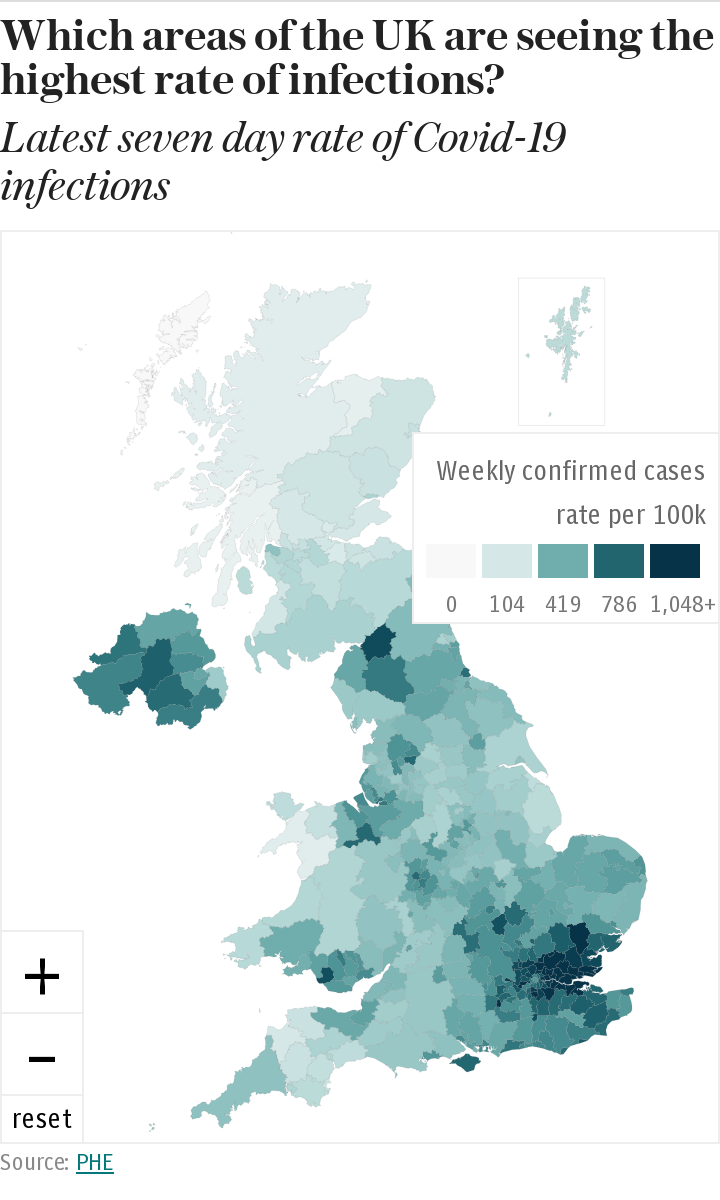
Read more: Would a 'circuit break' lockdown work?
What are the detailed national restrictions?
Social gatherings of more than six people are illegal (the "rule of six").
Anyone socialising in groups larger than six will be now be liable for a £200 on-the-spot fine, which will double on repeat offences up to £6,400. Previously, the fine was £100.
The same rules apply to face mask infringements, where if you do not wear one when you should, it will be a £200 fine for the first offence.
The limit of six people from up to six households will apply to adults and children indoors and outdoors, in homes, gardens, parks and venues such as pubs and restaurants.
A family of five will only be allowed to meet one grandparent at a time, while families of six or more will be banned from meeting anyone at all.
Mr Johnson said: "There will be some limited exemptions; for example, if a single household or support bubble is larger than six, then obviously they can still gather.
"Covid-secure venues like places of worships, gyms, restaurants, hospitality venues can still hold more than six in total. Within those venues, however, there must not be individual groups larger than six and groups must not mix socially or form larger groups.
"Education and work settings are unaffected. Covid-secure weddings and funerals can go ahead up to a limit of 30 people and organised sport will still be able to proceed."
Will there be a second UK lockdown?
The Government is still keen to avoid a second UK lockdown, but the Prime Minister recognises that more restrictions may be necessary if existing measures do not bring the R-rate below one.
Government sources had already warned Britain is in "the last chance saloon" to avoid tougher lockdown measures.
At a press conference on Sept 21, England's Chief Scientific Adviser Sir Patrick Vallance warned that there could be 50,000 coronavirus cases per day next month if the rate of the disease's spread is not brought down.
"At the moment we think the epidemic is doubling roughly every seven days," he said.
"If, and that's quite a big if, but if that continues unabated and this grows doubling every seven days... if that continued you would end up with something like 50,000 cases in the middle of October per day.
"50,000 cases per day would be expected to lead a month later, so the middle of November say, to 200-plus deaths per day.
"The challenge therefore is to make sure the doubling time does not stay at seven days. There are already things in place which are expected to slow that, and to make sure that we do not enter this exponential growth and end up with the problems that you would predict as a result of that.
"That requires speed, it requires action and it requires enough in order to be able to bring that down."
Matt Hancock has said that we must act now to save Christmas celebrations. "The more we can control the virus now and stop the spread now, the easier it's going to be to have a Christmas that's as close to normal as possible," he said.
But those plans look to be in tatters after Mr Johnson said that the new restrictions can be expected to last six months.
What about testing?
Testing is key to avoiding another lockdown. However, large numbers of people will be refused coronavirus tests even if they have symptoms under government plans to ration testing if the crisis deepens, The Telegraph revealed on Sept 16.
A prioritisation list drawn up by health officials suggests routine testing would no longer be offered to swathes of the public, with tests restricted to hospital patients, care homes, certain key workers and schools.
On Sept 9, Mr Johnson outlined plans to use testing to identify people who do not have coronavirus, so they can "behave in a more normal way, in the knowledge they cannot infect anyone else with the virus".
The "moonshot" plan, the Prime Minister said, could enable theatres and sports venues to test audience members on the day and allow in all those testing negative, as well as enable workplaces to operate more normally.
Mr Johnson said: "In future, in the near future, we want to start using testing to identify people who are negative - who don't have coronavirus and who are not infectious - so we can allow them to behave in a more normal way, in the knowledge they cannot infect anyone else with the virus.
"And we think, we hope, we believe that new types of test which are simple, quick and scalable will become available.
"They use swabs or saliva and can turn round results in 90 or even 20 minutes.
"Crucially, it should be possible to deploy these tests on a far bigger scale than any country has yet achieved - literally millions of tests processed every single day."
A pilot of the Moonshot Covid-19 testing programme will begin in October despite government scientific advisers warning that it could be seen as "authoritarian".
Salford and Southampton have been chosen as the proving grounds for mass testing, with separate pilots to be carried out at sports and leisure venues such as football stadiums and theatres.
The NHS Covid-19 app will have only a "limited effect" on containing coronavirus because too many people are waiting more than 24 hours for their test results, a government adviser has warned.
Official figures show just one in three people who turn up for a coronavirus test in England are getting results within 24 hours.
Local lockdowns
Outbreaks of Covid-19 are accelerating quite rapidly in the north west and north east of England and there has been a significant uptick in the number of people being admitted to intensive care, England's Chief Medical Officer Chris Whitty said on Wednesday.
Presenting charts at a news conference tracking the growth of the virus, Mr Whitty said they were seeing heavy concentrations of outbreaks in particular areas.
"This increase, as you can see, is accelerating quite rapidly in some of those areas," Whitty said.
"In the north east, in the north west in particular but also in London to some extent, we're seeing a significant uptick in the number of people who are entering intensive care."
On Thursday 1 October, Liverpool, Warrington, Hartlepool and Middlesbrough became the latest areas subjected to local coronavirus lockdowns but ministers said there was a "small hope" that progress was being made in slowing the spread of Covid-19 cases.
The new coronavirus restrictions will come into force on Saturday 3 October morning at one minute past midnight, Downing Street has said.
Health Secretary Matt Hancock said the second peak in coronavirus infections was "highly localised" and in some areas it was "spreading fast".
In Liverpool, there are 268 cases per 100,000 people, he told MPs, so action was needed.
The measures announced for the Liverpool city region, Warrington, Hartlepool and Middlesbrough follow similar restrictions imposed in the North East earlier this week.
Mr Hancock said: "We recommend against all social mixing between people in different households.
"We will bring in regulations, as we have in the North East, to prevent in law social mixing between people in different households in all settings, except outdoor public spaces like parks and outdoor hospitality.
"We also recommend that people should not attend professional or amateur sporting events as spectators in the areas that are affected.
"We recommend that people only visit care homes in exceptional circumstances, and there will be guidance against all but essential travel - essential travel of course includes going to work or school."
Mr Hancock said local leaders had been consulted and there will be a £7 million package of support for the councils affected.
Parts of the north east of England have been legally banned from meeting each other indoors in any setting.
Existing measures for Northumberland, Newcastle, Tyneside, Gateshead, Sunderland and County Durham were tightened from September 30 at the request of local authorities because the virus is still spreading.
Two-thirds of the population of Wales are now living under additional measures after three more local authority areas entered local lockdowns from September 28. Neath Port Talbot, Torfaen and the Vale of Glamorgan are the latest Welsh regions to have restrictions imposed.
There are different rules in numerous areas now under local lockdown.
Read more: New local lockdown rules
What is the 'traffic light' system?
Local lockdowns are set to be automatically triggered by a three-tier "traffic light" system, with alerts sent directly to people's mobile phones. The planned new approach divides the country into different areas based on local infection rates, which will dictate the severity of local lockdowns.
It will work alongside the new NHS Test and Trace app, which sees people scanning a special QR code to enter and exit pubs, restaurants and bars. The app will then send a message to the user about lockdown conditions when the coronavirus risk profile changes.
Going to work and using public transport
The Government's call for people to return to the workplace, a measure seen as critical for the survival of cafes and other businesses which rely on commuters and office workers, had been dropped.
Boris Johnson said people who can work from home should do so. He told MPs: "First, we are once again asking office workers who can work from home to do so. In key public services and in all professions where home working is not possible, such as construction or retail, people should continue to attend their workplaces."
Unions had criticised the Government's return-to-work drive, claiming that fewer than half of workplaces have put adequate social distancing measures in place.
An information campaign in local and national newspapers encouraging workers to return to the office had already been delayed in the wake of concerns over a second wave of coronavirus.
In depth: Your rights if your employer asks you to go back to work
Face masks
Face coverings are mandatory in shops, supermarkets, banks and building societies, with fines of up to £200 for anyone who fails to adhere to the new rules.
The Prime Minister recently announced that masks are also now required for retail staff, taxi passengers and hospitality customers except where seated.
Speaking at a Downing Street briefing the Prime Minister said face coverings should be worn over your mouth and nose "if you're in an enclosed space, and in close contact with people you don't normally meet".
He added: "I know, wearing a face covering feels odd to some people, I understand that, but face coverings do make it harder for the virus to spread, so please wear one to protect others."
The Government has introduced tougher penalties for repeatedly failing to wear masks in public places. Fines will double each time someone is found in breach of the rules, up until a maximum of £3,200.
On July 31, Mr Johnson announced that masks had to be worn in museums, galleries, cinemas and places of worship and this was written into law in England on August 8.
Visitors to hairdressers, gyms and leisure centres, dentists and opticians are not required to wear face coverings.
Face coverings are already compulsory on public transport.
Social distancing
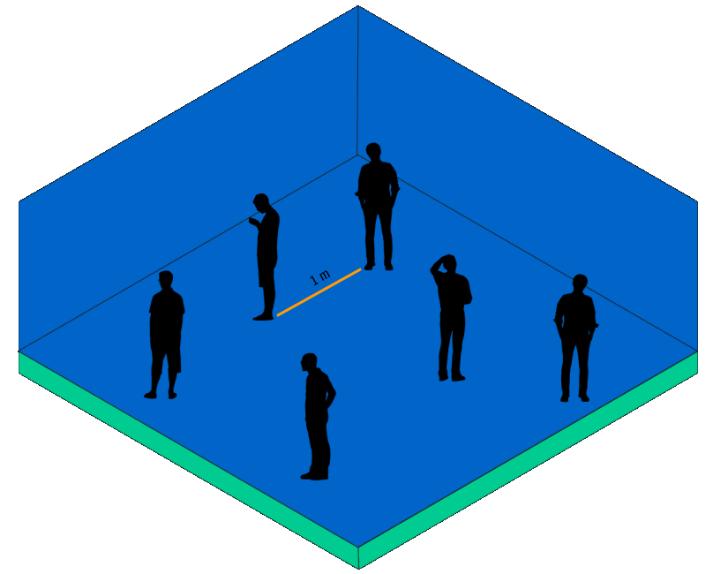
The Government said on September 9 that people should always use the two-metre rule when engaging with those they do not live with - or one metre with a face covering.
Read more: What are the new social distancing rules?
Rule of Six and social bubbles
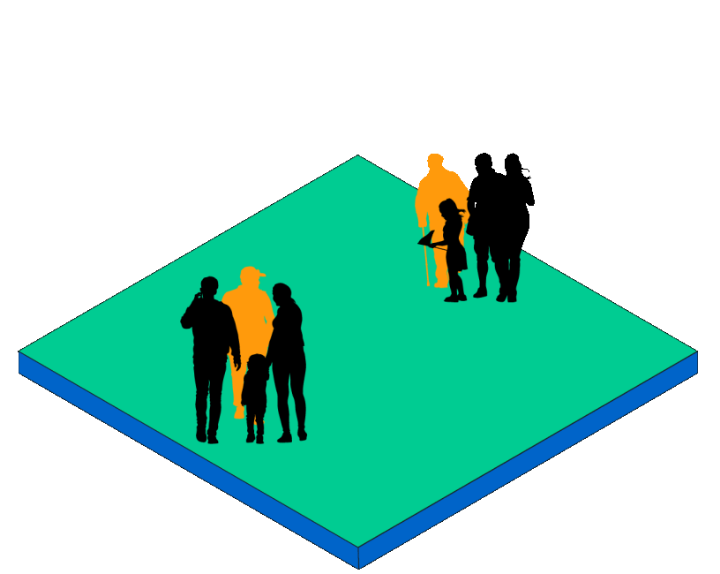
People should continue to "limit social contact as much as possible, and minimise interactions with other households", Mr Johnson said on September 9.
The Government said people should keep their distance from people they do not live with, and encouraged meeting outdoors.
The rule of six replaces both the existing ban on gatherings of more than 30, and the current guidelines on allowing two households to meet indoors.
Mr Johnson said he was "sorry" that two whole households would no longer be able to meet if their total exceeds six people.
He said: "This rule of six will of course throw up difficult cases; for example two whole households will no longer be able to meet if they would together exceed the limit of six people and I'm sorry about that, and I wish that we did not have to take this step.
"But as your Prime Minister, I must do what is necessary to stop the spread of the virus and to save lives. And of course we will keep the rule of six under constant review and only keep it in place as long as is necessary."
However, households and "support bubbles" that exceed six are exempt.
Families will be told to choose one member to visit elderly relatives in care homes.
New Government guidance for the care sector – which bans flowers and hugs – says homes can begin allowing visitors shortly after they have undergone risk assessments of safety protocols.
The advice recommends "limiting the numbers of visitors to a single constant visitor per resident, wherever possible". It says: "This, for example, means the same family member visiting each time to limit the number of different individuals coming into contact."
Relatives will be told to wear face coverings and follow advice on social distancing as much as possible, keeping at least one metre away and avoiding handshakes, kisses or hugs.
Self-isolating
Individuals who test positive for coronavirus or show symptoms must self-isolate for 10 days.
Anyone infected with coronavirus who leaves self-isolation in a way that puts someone else in danger is committing a crime, with the fine rising to £10,000 for a second offence.
Ministers have yet to specify precisely what will amount to recklessness but No 10 indicated that nipping to the supermarket after being instructed to self-isolate could merit a £4,000 fine.
Other offences recently added into law include a £1,000 fine for falsely telling test and trace officials that you came into contact with a neighbour, colleague or friend after testing positive for coronavirus, forcing them into 14 days isolation.
Under the rule, people would be guilty of a criminal offence if they "knowingly falsely state" to a test and trace or council officer that "someone is a close contact of a person who has tested positive for coronavirus".
A second offence gets a £2,000 fine, with £4,000 for a third and £10,000 for a fourth.
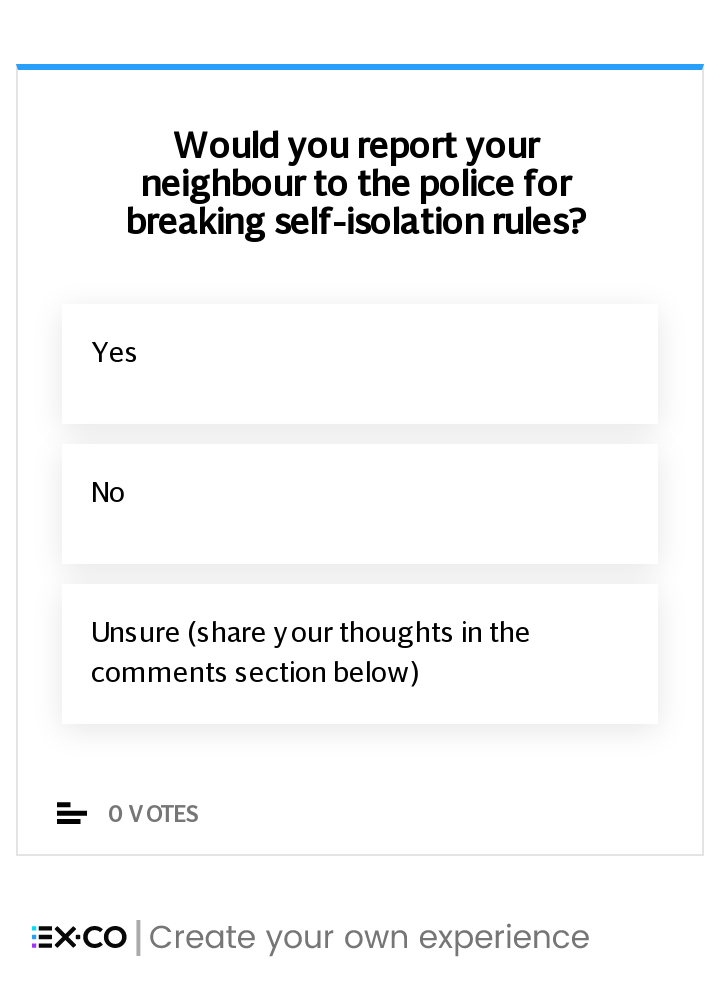
Deliberately not naming your family to test and trace officials when you test positive, so requiring them to self-isolate, also becomes an offence, with a fine of £1,000, rising to £10,000 on the fourth occasion.
Failing to tell your boss that you have to self-isolate "as soon as reasonably practicable" will be an offence, punishable by a £50 fine, while any employer who forces a self-isolating member of staff to come to work will face a fine of £1,000.
In depth: Coronavirus vs flu and cold symptoms
Foreign travel
Grant Shapps, the Transport Secretary, has published a list of countries and territories where the Government has abandoned its 14-day quarantine policy. Changes are usually announced on Thursdays.
Mr Johnson announced on September 9 that Border Force would also step up the enforcement of quarantine rules for travellers into the country.
"We will simplify the passenger locator form needed for travelling to the UK and take measures to ensure these are completed and checked before departure," he said.
"Border Force will step up enforcement efforts at the border to ensure arrivals are complying with the quarantine rules."
In depth: How to get travel insurance should you choose to ignore Foreign Office advice
Pubs, restaurants and hospitality
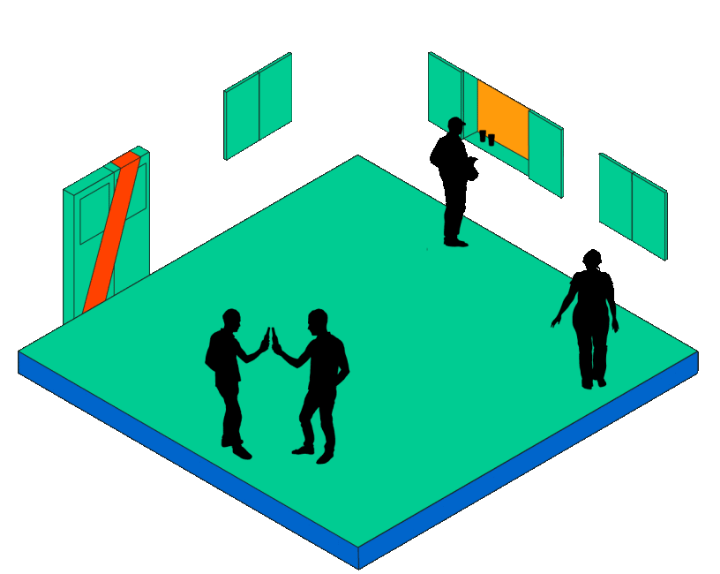
All pubs, bars and restaurants must now operate a table service only, except for takeaways. Together with all hospitality venues, they must close at 10pm.
Social premises and venues, including pubs and restaurants, are legally required to request Test and Trace information from customers and keep the details for 21 days, Mr Johnson said on September 9.
Fines will be levied against hospitality venues that fail to ensure that their premises remain Covid-secure.
The latest rules require pubs, bars, restaurants and members' clubs to take "all reasonable measures" to stop singing on the premises by groups of more than six, and dancing, or face fines of at least £1,000, rising to £10,000 for a fourth offence.
They are also barred from playing music that exceeds 85 decibels in order to prevent people from shouting at each other or getting too close to speak.
Read more: What do the new Covid rules mean for gyms, pubs, restaurants and universities?
Gyms, swimming pools and sports
The rule of six has now been extended to all adult indoor team sports.
Netball, basketball, 5-a-side football and other sports will be severely impacted, but it is understood that there may be some emergency funding on its way.
Gyms remain largely unaffected since the latest changes were announced in September. However, the Prime Minister reiterated recently that groups of six people cannot go to the gym together.
Swimming pools are permitted to reopen, though not all have, and grassroots sports have restarted.
While face coverings remain obligatory on public transport, gym-goers are not expected to wear theirs while working out. Some gyms might require them though - so ask before you go.
The Government has said it will be reviewing its intention to return audiences to stadiums and conference centres from October 1.
In depth: Will gyms close again?
Schools
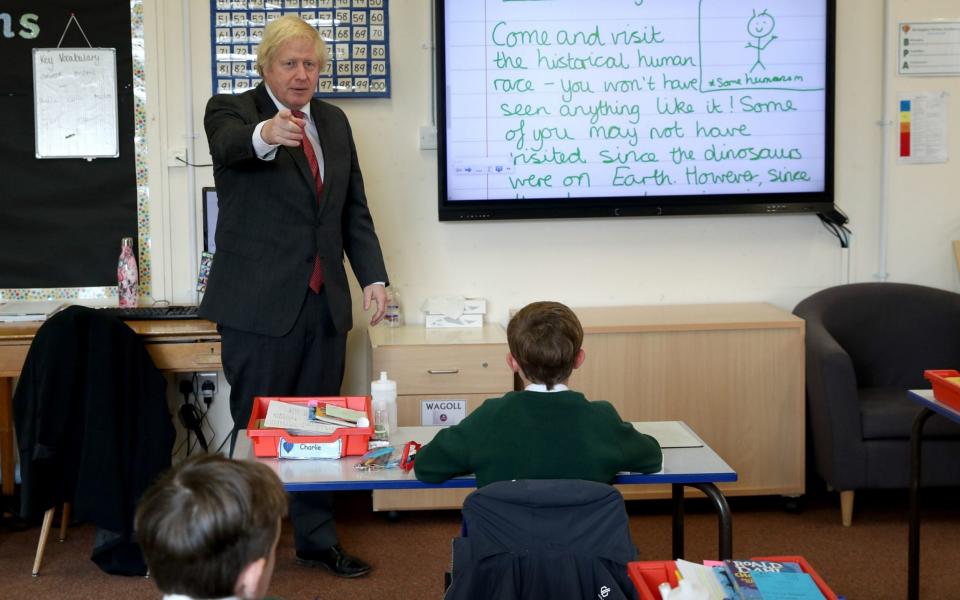
On Wednesday 30 September Prime Minister Boris Johnson said that he wanted to assure everyone at university that he would allow students home for Christmas.
Chief medical officer for England Professor Chris Whitty said that rates in school age children below the age of 17 "are really not changing very much".
Boris Johnson said he will ensure that schools, colleges and universities stay open "because nothing is more important than the education, health and wellbeing of our young people".
On September 29, the Education Secretary, Gavin Williamson, promised that "every student will be able to spend Christmas with their family".
Addressing the House of Commons, Mr Williamson sought to assuage fears that university students would no longer be able to return home at the end of the year if the coronavirus situation did not improve
Mr Williamson said: "It's essential we put in place measures to ensure this can happen, while minimising the risk of transmission.
"Where there are specific circumstances that warrant it, there may be a requirement for some students to self-isolate at the end of term and we will be working with the sector to ensure this will be possible, including ending in-person learning if that is deemed to be necessary.
"My department will publish this guidance shortly so that every student will be able to spend Christmas with their family."
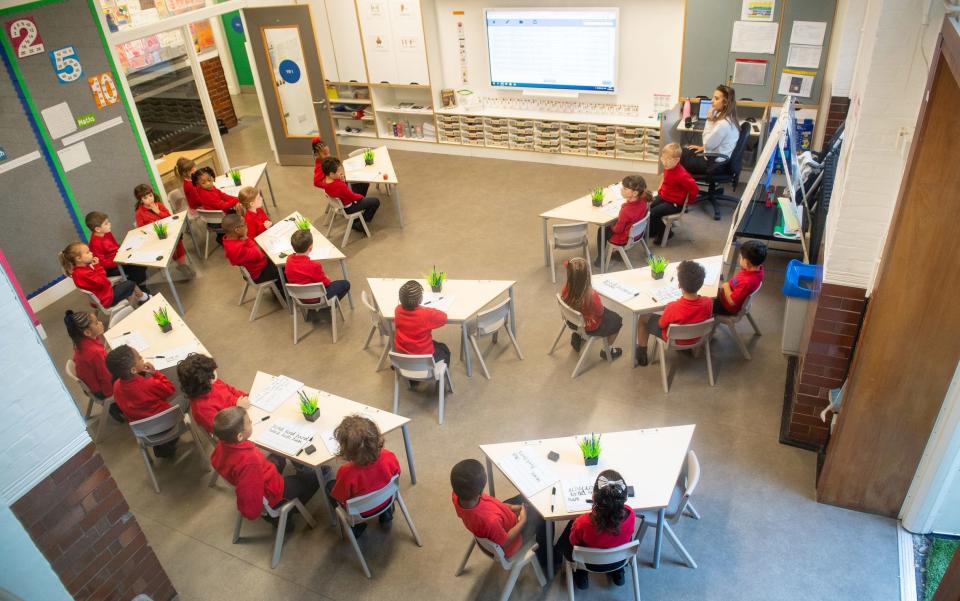
Schools, nurseries and colleges opened "for all children and young people on a full-time basis" from September, with schools in England told to keep classes or whole year groups apart in separate "bubbles".
The Government insisted that closing schools "is not an option", but Professor Chris Whitty said the Government's policy on schools may have to be "looked at again" if infections among school-aged children rise.
Prof Whitty said: "At the moment rates are still very low, if there were to be a change in that, there were to be a much broader increase in rates including of school-age children, I think the current policies would have to be looked at again as in the other areas."
On August 28, the Education Secretary published new guidance that instructed schools to use rotas as a halfway house between teaching all pupils and teaching only the children of key workers if local lockdowns made it impossible to operate as normal.
Mr Williamson said pupils would switch between classroom and home learning to “break chains of transmission of the virus” under a four-tier system.
Tier 1 schools are fully open to all pupils, but with the mandatory use of face coverings in corridors and communal areas for pupils in Year 7 and above.
Then, “if all other measures have been exhausted”, schools move to Tier 2, where secondary schools teach children on a rota basis and primary schools remain open to all pupils.
Tiers 3 and 4 cover schools returning to a system of teaching only the children of key workers, while remaining pupils are taught remotely.
Schools were advised to stagger break and lunch times, as well as start and finish times, to keep groups apart and avoid creating busy corridors, entrances and exits.
In depth: Will schools close again?
Hairdressers and salons
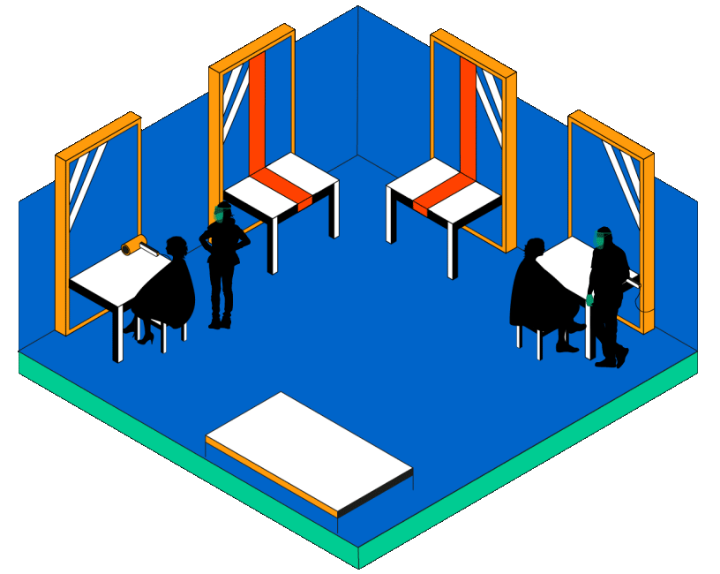
Hair salons reopened, but the experience of getting your hair cut is very different.
Hairdressers are required to wear full-face plastic visors and surgical face masks to reduce the risk of infection and also need to follow strict rules over the disinfecting of equipment.
Customers must usually make appointments, and there are limits on the amount of people in salons. Customers are not obliged to wear a mask, but can if they wish to.
Beauty salons, nail bars, tattooists, spas, tanning salons and other close contact services have also reopened.
In depth: What beauty treatments are allowed?
Hotels and camping
Hotels, holiday apartments, caravan parks and campsites can now operate as long as shared facilities are kept clean.
In government guidance released on June 24, establishments were advised to implement a series of measures to ensure the safety of guests and staff.
Those checking in to hotels should expect to see social distancing stickers on the floor, perspex screens at the reception desk and hand sanitiser or handwashing facilities as they enter the premises during their stay.
The duration of activities such as check-in should now be kept as short as possible, and keys should be cleaned in between guest use. Queues may form outside hotels as they have done outside supermarkets, and hotels have been asked to introduce queuing systems using barriers should they be needed.
Larger hotels can opt to stagger check-in and check-out times, or place markers on the floor to maintain social distancing.
Recommendations to stop coronavirus from spreading also include emptying mini bars, offering buffet-free breakfasts and regularly deep cleaning rooms, with 24 hours left between bookings.
All paperwork is likely to be removed from rooms, along with the telephone, while the plastic pouch containing tea and coffee sachets will either be removed or quarantined for up to 72 hours between guests.
It is thought campsites will ensure that tents are pitched further apart than normal so social distancing measures can be adhered to, along with frequent deep cleaning of facility blocks such as showers.
Some campsites will be required to reduce the number of pitches to keep numbers down.
Campsites in Wales reopened on July 6, while those in Scotland reopened on July 15.
Cinemas, museums, galleries and theatres
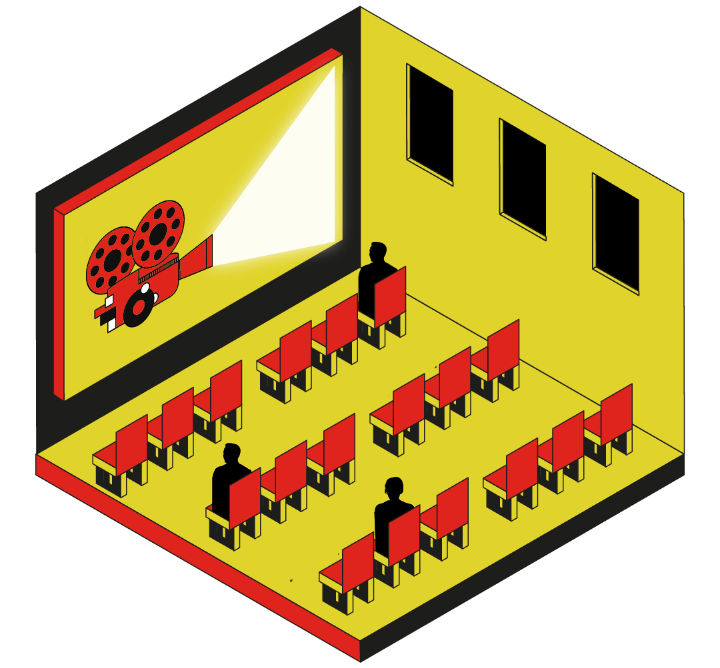
Boris Johnson announced on September 9 that plans to pilot larger audiences in venues later in September would have to be revised. Indoor performances resumed on August 15.
Outdoor theatres reopened and other leisure venues, including cinemas, art galleries and museums, were allowed to reopen more fully from July 4, albeit with their own social distancing rules in place.
Suggested guidance in galleries and museums includes one-way systems, spaced queuing, increased ventilation and pre-booked tickets. Wearing a mask is mandatory in visitor attractions and entertainment venues. Cinemas are expected to sell only a certain proportion of seats for each movie and face masks are now mandatory.
Both the Cineworld and Picturehouse cinema chains have said film screenings will have staggered start and end times, and customers are likely to be required to queue outside before entering to maintain social distancing.
Once inside, families and friends who book together will be allowed to sit with each other at screenings, but it is likely that seats will be kept free between different bookings. However, there will be no pick 'n' mix or other self-service snacks.
In depth: This is what the Covid cinema experience is actually like
Bowling alleys, skating rinks and casinos
Casinos, bowling alleys and skating rinks reopened on August 15.
All of the above premises are expected to have "Covid-secure" measures in place, which will most likely involve limitations on customer capacity.
Religion
Places of worship are reopening, but hymns are forbidden due to the higher risk of the virus being transmitted through singing.
Churches are encouraged to implement a "booking system", meaning people may need to reserve their space ahead of services.
Worshippers are advised to bring their own bible or holy book to their place of worship with them. Where worshippers are unable to do so, books should be cleaned and quarantined for 48 hours since their previous use. Muslims should also bring their own prayer mat to services.
Communion is allowed if it is deemed "essential", but worshippers should not drink from the same glass or share the same bread, which could come pre-wrapped. The priest distributing communion should wear gloves and all those involved in the practice should wash their hands before and after.
No hymns should be sung or wood instruments used as they create an “additional risk of infection”.
At christenings, if a family wishes to have their baptism as a private ceremony then the attendees must be limited to six people, excluding the officiant and others working at the ceremony. If the baptism is to happen within the course of communal worship - a service at which the general public can attend, not just an invited group, and normally referring to an advertised regular act of worship - then the numbers who can attend need to be assessed for the building to determine how many it can hold safely with physical distancing.
For christenings and other water rituals, only “small volumes” should be splashed onto the body with full immersion avoided. Those present should stand “distant from any splashes” and all those involved should thoroughly wash their hands before and after such ceremonies. Parents should hold their children throughout the christening service.
Weddings
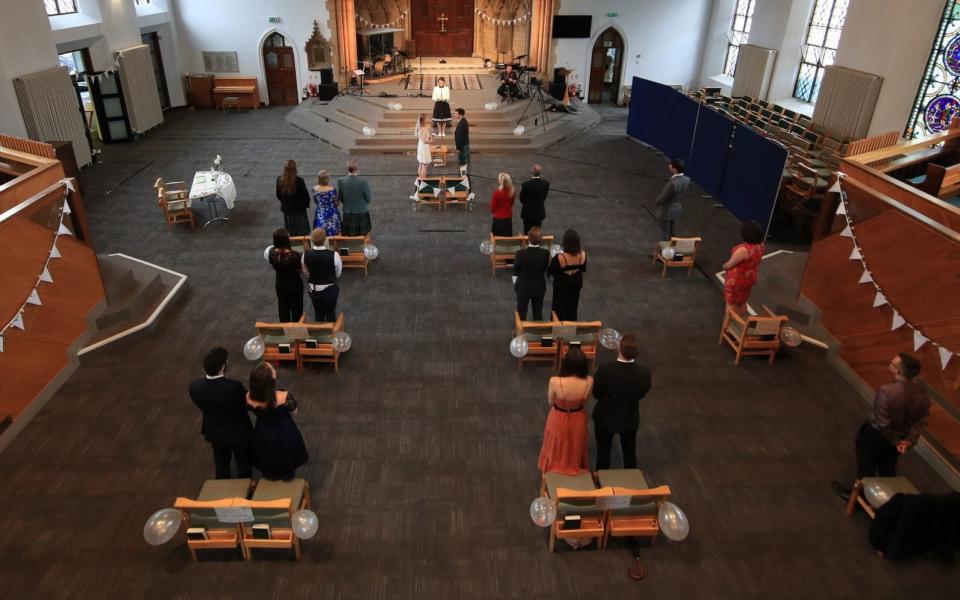
At present, a maximum of 15 people can attend wedding ceremonies and receptions, down from 30 under earlier regulations. That number includes the couple, witnesses, officiants, guests, photographers, security or caterers. It does not include staff employed by the venue.
Guests should avoid singing, shouting or raising their voices during the ceremonies, while the bride and groom must wash their hands before and after exchanging rings.
The guidelines also state that only one person is permitted to sing during the ceremony and they should do so from behind a perspex screen.
"Spoken responses during marriages or civil partnerships should also not be in a raised voice," the official guidance says. "This is because of the potential for increased risk of transmission from aerosol and droplets."
The orders of service will be disposable and cash donations will be discouraged. Under the new rules, weddings and civil partnerships should be concluded in the “shortest possible time” and limited to the “legally binding” sections of the service.
However, up to 30 people can still attend a funeral.
In depth: The new Covid rules for weddings
What could happen next?
Further tightening of the 'rule of six'
With Scotland and Northern Ireland opting to ban households mixing indoors, Mr Johnson could seek to follow suit if the data shows the 'rule of six' is failing to drive down infections.
Pubs closing
If the curfew fails to drive down non-compliance with social distancing rules in hospitality venues Mr Johnson could opt to close them altogether.
The proposal was discussed extensively by ministers but was swerved amid concerns it could dent the economic recovery.
Outdoor sports, gyms, pools
While the rules on outdoor sports remain unchanged, ministers could extend the 'rule of six' to include contact team sports such as rugby, football and hockey if cases continue to rise.
Gyms, which were one of the last venues to reopen during the easing of lockdown due to the high-risk of transmission, could also be at risk.
Swimming pools are also believed to be another area of concern.
Non-essential shops
In a bid to further reduce non-essential contact between households ministers could seek to shut clothes shops, hairdressers and beauty salons in a repeat of lockdown measures introduced in March.
Universities
While Mr Johnson has made clear that schools will be the last sector to shut if more restrictions are required, a growing number of scientists have suggested that universities may be forced to shift back to virtual teaching.

